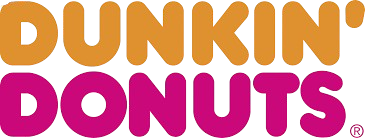Strategy to Hire a Skilled Teacher
Your ultimate checklist for how to hire a Teacher. Includes what to look for while hiring Teacher, skills to test, capabilities based on experience level, sample questions and a ready-to-use Teacher assessment.


 8,956
8,956
Candidates Assessed
Loved by these companies, and so many more










How to hire a Teacher
Specifications for a Teacher
Deciding on Skills and Qualifications for a Teacher
When hiring a Teacher, it's crucial to consider the educational background, teaching certifications, and subject matter expertise. Depending on the educational level, whether elementary, middle, or high school, the requirements may vary. Consider the teacher's ability to engage students, adapt to different learning styles, and integrate technology into the classroom.
Assessing Skills of a Teacher
Assessing a Teacher's skills involves evaluating their educational qualifications, teaching experience, and ability to manage a classroom effectively. Look for strong communication skills, creativity in lesson planning, and a passion for teaching. Practical assessments may include a teaching demonstration, where candidates present a lesson to a panel or a class, and interviews focusing on their teaching philosophy and problem-solving abilities.

Concepts your Teacher should know based on experience
Teachers assessed using Equip’s assessments
Entry-level Teacher
3,982
Mid-senior Teacher
2,788
Senior Teacher
2,186
- Basic Pedagogical Techniques: Understanding of fundamental teaching methods and classroom management strategies.
- Subject Matter Knowledge: Proficiency in the specific subject they will be teaching.
- Communication Skills: Ability to convey information clearly and effectively to students.
- Curriculum Development: Ability to design and implement lesson plans that align with educational standards.
- Assessment and Evaluation: Skills in creating and grading assessments to measure student learning.
- Classroom Technology Integration: Experience using educational technology to enhance learning.
- Advanced Instructional Strategies: Expertise in differentiated instruction and personalized learning approaches.
- Educational Leadership: Ability to mentor junior teachers and lead professional development initiatives.
- Policy and Curriculum Design: Involvement in shaping educational policies and curriculum at a higher level.
What can you do with Teacher Assessment on Equip
Add more test types such as video interview, SQL test, CSS test etc
Choose and add from 100+ skills from Equip’s Question Bank
Add your own programming and quiz questions with a Custom Test
About Teacher
Mayank K
Recruiter
A Teacher is responsible for educating students and fostering a positive learning environment. They plan and deliver lessons, assess student progress, and adapt teaching methods to meet diverse learning needs. Teachers play a pivotal role in shaping students' academic and personal development, preparing them for future educational and career opportunities.
1. Importance of Teacher
- Knowledge Transfer: Teachers are essential for imparting knowledge and skills to the next generation.
- Student Development: They support students' intellectual, social, and emotional growth.
- Community Impact: Teachers contribute to the community by educating future citizens and leaders.
- Innovation in Education: They introduce new teaching methods and technologies to enhance learning.
- Role Models: Teachers often serve as role models, inspiring students to achieve their potential.
2. Recent Industry Trends for Teachers
- Technology Integration: Increasing use of digital tools and online platforms in education.
- Personalized Learning: Focus on tailoring education to individual student needs and learning styles.
- Social-Emotional Learning (SEL): Emphasis on developing students' emotional intelligence and interpersonal skills.
- STEM Education: Growing importance of science, technology, engineering, and mathematics in curricula.
- Remote and Hybrid Learning: Adoption of flexible learning models due to changing educational landscapes.
3. Popular Frameworks for Teachers
- Bloom's Taxonomy: A framework for categorizing educational goals and objectives.
- Universal Design for Learning (UDL): An approach to designing inclusive educational environments.
- Project-Based Learning (PBL): A teaching method that involves students in real-world problem-solving projects.
- Flipped Classroom: An instructional strategy where students learn content online and engage in activities in class.
Mayank K

How Equip helps you hire a Teacher
Frequently Asked Questions
Explore how to hire for more roles
Discover the Power of Effective Skills Testing Today!
Get started with Equip and streamline your hiring process | No credit card needed

